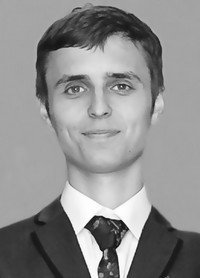DISTANCE LESSONS OF PHYSICAL EDUCATION AT THE HIGHER EDUCATION INSTITUTION IN COMPARISON WITH THE TRADITIONAL FORM OF TRAINING
Keywords:
Physical activity, distance learning, pandemic.Abstract
Objective of the study was to evaluate the possibilities of a distance form of practical training in physical culture to maintain the level of physical activity of students.
Methods and structure of the study. The scientific work was carried out on the basis of the National Research University "Higher School of Economics" St. Petersburg in the period from February 2020 to the present and was aimed at studying the physical activity of students, as well as assessing their opinion about their level of physical fitness and the possibility of maintaining online physical education. culture and sports. The survey involved 210 students at the Higher School of Economics in St. Petersburg. Of these, 76 students (36.2%) - the 1st year, 66 students (31.4%) - the 2nd year, 60 students (28.6%) - the 3rd year and eight students (3.8 %) – 4th course. Physical education classes at the university were organized as follows. Starting from February 2020, practical classes in physical education were not held in full-time mode, but were replaced by theoretical ones in a remote format. As a result, the physical activity of students has dropped sharply. In the 2020-2021 academic year, students have the opportunity to choose between theoretical classes, participating in a practical online physical activity class with HSE teachers, and providing a subscription to a sports club. In the 2021-2022 academic year, this organization of classes has been preserved.
Results and conclusions. Practical physical education classes in a remote format allow maintaining the level of physical activity of students, however, face-to-face classes, due to the availability of sports equipment, group forms of communication and direct contact with the teacher, remain the undisputed leaders and have the best healing effect.
References
Vonsovich K.A., Rogaleva L.N. Issledovaniye samoregulyatsii proizvolnoy aktivnosti u studentov instituta fizicheskoy kultury [Study of self-regulation of voluntary activity among students of the Institute of Physical Culture]. Izvestiya Tulskogo gosudarstvennogo universiteta. Fizicheskaya kultura. Sport. 2014. No. 2. pp. 89-95.
Kostov F.F., Volkova N.L., Rodichkin P.V. Fizicheskaya aktivnost i psikhologo-pedagogicheskaya nagruzka studentov v usloviyakh distantsionnogo obucheniya [Physical activity and psychological and pedagogical load of students in conditions of distance learning]. Teoriya i praktika fizicheskoy kultury. 2021. No. 9. pp. 70-71.
Rekomendatsii VOZ po voprosam fizicheskoy aktivnosti i malopodvizhnogo obraza zhizni: kratkiy obzor [WHO recommendations on physical activity and sedentary lifestyles: a brief overview]. Geneva: World Health Organization, 2020. 24 p.
Stolyarov V.I., Abalyan A.G., Fomichenko T.G., Vorobyov S.A. Vliyaniye pandemii koronavirusa na fizkulturno-sportivnuyu aktivnost naseleniya Rossiyskoy Federatsii [The impact of the coronavirus pandemic on the physical culture and sports activity of the population of the Russian Federation]. Teoriya i praktika fizicheskoy kultury. 2021. No. 9. pp. 32-34.
Elmurzaev M.A., Ponomarev G.N. Sotsiokultupnyy potentsial fizicheskoy rekreatsii [Sociocultural potential of physical recreation]. Teoriya i praktika fizicheskoy kultury. 2014. No. 2. pp. 52-54.


